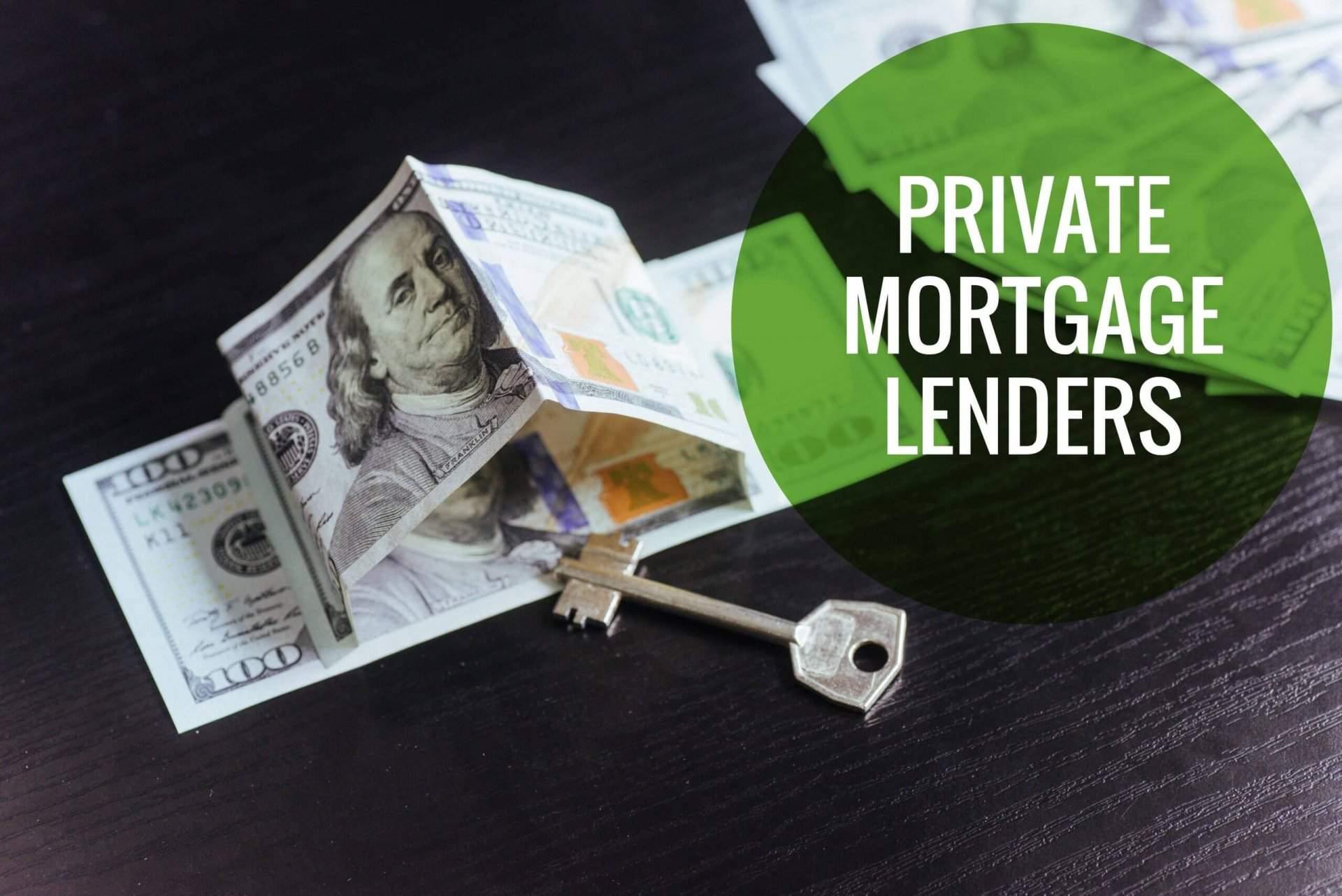All About Mortgage Lending: Secret Insights for Homebuyers and Investors
Mortgage lending is a complicated landscape, using different finance types tailored to varied borrower requirements. Recognizing the subtleties of traditional, FHA, VA, and USDA financings can considerably affect buyers and financiers alike. Furthermore, credit history play a critical duty in securing desirable rates of interest. As the home loan application procedure unravels, numerous crucial aspects come right into play, influencing both approval and terms. What are the crucial steps and strategies to browse this detailed process efficiently?
Understanding Various Kinds of Mortgage Loans
Understanding the numerous kinds of mortgage loans is essential for possible buyers, as each option deals with different economic scenarios and requirements. Conventional fundings, normally used by personal lending institutions, need a greater credit report and usually involve a down payment of at the very least 20%. On the other hand, FHA car loans are government-backed and developed for new customers, allowing lower credit rating and smaller sized deposits. VA financings, offered to experts and active armed forces participants, supply desirable terms and no down payment demand. Furthermore, USDA finances support rural property buyers with reduced to modest earnings, providing absolutely no deposit alternatives. Fixed-rate mortgages keep consistent monthly repayments over the car loan term, while variable-rate mortgages begin with lower rates that can vary. By recognizing these distinctions, homebuyers can make informed choices tailored to their monetary circumstances and lasting objectives. Choosing the right home loan kind is a significant action in the home-buying process.
The Value of Credit Rating Ratings in Home Mortgage Approval
Credit report play an important duty in the home mortgage authorization process, acting as a crucial indication of a debtor's creditworthiness. A higher credit history can lead to more beneficial rates of interest, substantially impacting the total cost of a home loan. Understanding the fundamentals of debt scores and checking out ways to improve them can considerably benefit potential property buyers.

Credit Rating Fundamentals
A solid credit history plays an essential role in the mortgage approval procedure, influencing lenders' assumptions of a borrower's reliability. Credit report, usually varying from 300 to 850, show a person's creditworthiness based on their economic background, including payment history, debt use, size of credit history, kinds of debt accounts, and recent questions. Lenders assess these ratings to determine the danger linked with providing money. Normally, a higher credit rating score indicates lower risk, leading to a smoother authorization process. Buyers and investors should frequently examine their credit history records for errors and take steps to boost their ratings, such as paying expenses on schedule and lowering arrearages. A solid credit rating is an important possession in securing beneficial mortgage terms.
Influence on Rate Of Interest Rates
Rates of interest on home mortgages are significantly affected by the consumer's credit rating, which acts as a key indicator of economic integrity. Lenders assess credit report to evaluate the threat related to extending a car loan. Private Mortgage Lenders Savannah GA. Higher credit history usually cause lower rate of interest rates, as they recommend that debtors are much more most likely to settle their financial obligations. Conversely, lower credit rating might cause higher prices, showing the boosted risk perceived by lenders. This connection underscores the relevance of preserving a strong credit rating account for potential debtors. Recognizing just how credit history influence rate of interest can equip buyers and financiers to make informed decisions, potentially conserving them significant quantities over the life of their mortgage

Improving Your Credit Rating
Buyers crazy about protecting positive home loan terms should acknowledge the pivotal role of credit history in the approval process. A greater credit history usually causes lower rate of interest, which can significantly lower the general expense of a home mortgage. Lenders examine credit report scores to gauge a candidate's financial dependability, affecting their decision to authorize or deny a home mortgage application. To enhance their ratings, prospective borrowers need to concentrate on timely expense repayments, reducing impressive debts, and avoiding new credit scores questions. Frequently reviewing debt reports for errors can also aid keep precision. By taking these actions, homebuyers can enhance their credit reliability, ultimately enhancing their possibilities of acquiring a home loan with favorable problems.
Trick Aspects Influencing Rate Of Interest
Just how do various financial factors form the landscape of mortgage interest rates? Several essential elements play an important function in identifying these prices. The Federal Reserve's monetary policy substantially affects rate of interest; when the Fed increases or decreases benchmark prices, mortgage prices normally do the same. Furthermore, inflation trends affect the buying power of consumers, leading loan providers to adjust rates as necessary. Economic development signs, such as employment prices and GDP growth, also influence rate of interest prices; a robust economic situation usually causes greater prices because of raised demand for lendings. The bond market serves as an essential criteria; when bond yields rise, home loan rates have a tendency to raise. Ultimately, private consumer factors, consisting of credit rating and debt-to-income proportion, can influence the certain price supplied (Private Mortgage Lenders Savannah GA). Recognizing these dynamics aids buyers and financiers make educated choices in the home mortgage market
The Home Loan Application Process Described
What steps are included in protecting a home loan? The home mortgage application process begins with the debtor celebration essential documentation, such as earnings declarations, tax obligation returns, and credit rating. Next off, the borrower chooses a lending institution and submits an official application, providing all called for info. The lender then performs a credit rating check and evaluates the customer's financial stability.Following this, the lender will do an assessment of the property to establish its market value. When the residential or commercial property is evaluated, the lending institution reviews the application, consisting of the borrower's financial history and the evaluation results, to decide whether to approve or reject the lending. If authorized, the debtor receives a financing quote laying out the terms and costs connected with the mortgage.Finally, the consumer evaluations and indications the closing records, officially securing the home loan. Comprehending this process is vital for prospective property owners as they browse the complexities of mortgage lending.
Tips for First-Time Homebuyers
New property buyers deal with a special collection of challenges when entering the actual estate market. Comprehending the various kinds of mortgages available and effectively budgeting for their acquisition are essential action in the homebuying journey - Private Mortgage Lenders Savannah GA. By furnishing themselves with this expertise, they can make educated decisions that straighten with their financial objectives
Recognizing Home Loan Types
Steering the globe of home loan types can be daunting for those entering the real estate market for the very first time. Comprehending the different alternatives is crucial for new buyers. Fixed-rate home mortgages offer foreseeable monthly repayments, making budgeting simpler. Conversely, adjustable-rate home loans (ARMs) usually begin with lower rates that can change with time, which might be enticing however brings risks. Government-backed finances, such as FHA and VA finances, give additional support for eligible buyers, often calling for reduced down repayments. Furthermore, first-time property buyers might explore standard fundings that stick to particular criteria. Each mortgage type has distinct benefits and downsides, so it is vital for newcomers to research extensively and evaluate their long-lasting monetary goals before choosing.
Budgeting for Your Acquisition
When beginning on the trip of homeownership, effective budgeting is crucial for prospective purchasers to assure monetary security throughout the process. Newbie homebuyers should begin by reviewing their revenue and expenses, guaranteeing they designate funds for a down repayment, shutting expenses, and moving expenditures. Establishing a regular monthly budget that consists of home mortgage settlements, great site residential or commercial property tax obligations, insurance coverage, and upkeep expenses is vital. Customers should also consider potential changes in rates of interest and market problems. Developing a reserve can offer a safeguard for unforeseen expenditures. Furthermore, buyers may gain from seeking advice from economic experts or using online budgeting tools to acquire a more clear understanding of their economic situation. Careful planning ultimately brings right here about notified decisions and a successful home purchase.
Funding Options genuine Estate Investors
What funding choices are readily available to investor aiming to increase their profiles? Financiers can check out a number of opportunities. Conventional home loans remain a prominent option, commonly needing a bigger down payment and excellent credit score. Additionally, financiers may take into consideration hard money finances, which are short-term loans safeguarded by realty, offering quick accessibility to funding yet at greater rate of interest rates.Another choice is personal financing, where financiers can borrow from pals or family, frequently with even more adaptable terms. For those seeking to finance multiple residential properties, profile lendings could be suitable, enabling multiple buildings to be bundled under one mortgage.Additionally, actual estate crowdfunding platforms have actually emerged, enabling investors to merge resources with others for property investments. Leveraging equity in existing residential or commercial properties via cash-out refinancing can offer funds for brand-new investments. Each option has its benefits and risks, needing mindful consideration based upon specific investor goals.
Often Asked Questions
What Are the Normal Closing Costs Linked With a Mortgage?
Closing costs typically consist of assessment costs, title insurance policy, lawyer costs, and source costs. These expenditures usually vary from 2% to 5% of the funding quantity, impacting the general economic commitment for the purchaser.
How much time Does It Require To Close on a Home mortgage?
The duration to shut on a home mortgage normally ranges from 30 to 45 days, depending on various variables, including lender effectiveness, paperwork completeness, and market conditions, which can considerably influence the total timeline.

Can I Refinance My Home Loan Later?
Yes, refinancing a home loan later on is feasible. House owners typically pursue refinancing to secure lower rate of interest, minimize regular monthly payments, or access home equity. Nevertheless, they ought to think about involved charges and their economic circumstance prior to continuing.

What Occurs if I Miss a Home Loan Repayment?
If a home loan repayment is missed, the borrower may deal with late costs, prospective damage to their credit rating, and possible repossession proceedings. Lenders normally use poise durations, but consistent missed out go to this site on repayments can result in major consequences.
Exist Charges for Paying off My Mortgage Early?
Several lending institutions impose early repayment fines for very early mortgage reward, potentially setting you back debtors added costs. Terms vary significantly amongst lenders, so it is important for consumers to evaluate their home loan arrangements prior to making early payments.